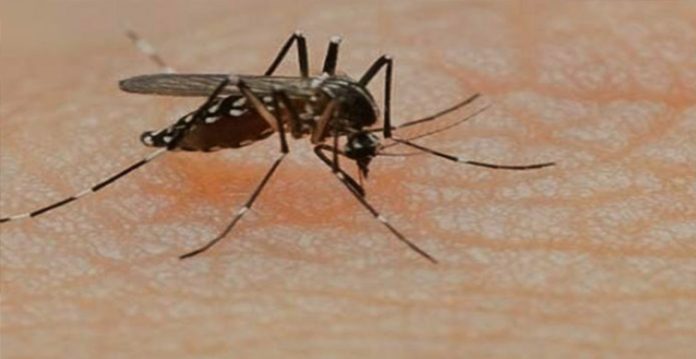As the nation dropped its guards following a reduction in the covid-19 cases, a new threat has clutched the national capital. Dengue is increasingly getting dominant in Delhi with the worse numbers reported in the past 3 months when compared to the last 2-3 years.
The data was unveiled by a senior doctor at the Ganga Ram Hospital of the city. She added that while the infections are on the rise, deaths too are following the trend. The cases are “far more” than the last couple of years, she said.
In merely 6 days of November, Delhi witnessed 1,171 reported dengue cases. Almost the same number of infections were reported in the entire month of October (1,196). This September marked the highest number of cases in 3 years after reporting 217 dengue cases.
Dengue infections first showed their presence in February with 2 cases and slowly started taking pace. In March, 5 were reported, April-10, May-12, June-7, July-16 and 7 cases in August.
There have been 2,708 cases in total this year- the highest since 2018 when 1,595 cases surfaced. The year hasn’t ended yet and the infections keep increasing, raising fears of more cases emerging.
ALSO READ: Centre to Send Experts’ Team to States with High Number of Dengue Cases
Between January 1st and October 30th of 2020, 612 dengue cases were reported and 1,069 in 2019.
As for the fatalities, 9 people have died till now- with 3 of them taking place on Monday alone. This comes just second to 2017 when 10 people died of dengue.
Speaking about the way reduction in covid cases have been treated by people, Dr Pooja Khosla, a senior consultant said, “Around Diwali (and as winter sets in), when we expected to see cases decrease, there was an increase. This might be because, as Covid restrictions are lifted and we return to normal, people are taking it too easy and not following post-monsoon precautions.”
Reopened building sites, stagnant waters, and overcrowded markets are becoming the breeding places for mosquitoes and henceforth dengue as people aren’t paying attention to the norms.
The national capital isn’t the only city where dengue is on the rise as Dr Khosla added that infections from UP and other regions too might be playing a part in the cases of Delhi.
Dozens of deaths were reported in Uttar Pradesh following a surge in cases in August due to viral fever and dengue.
Ganga Ram hospital is witnessing around 80-100 walk-in cases of dengue every day due to the spike. Half of these patients are getting admitted, she said, adding that 20 per cent of these are in serious conditions while 10 per cent need ICU admissions.
Dr Khosla warned that if the careless behaviour is continued, cases will keep increasing, “We are mainly getting regular dengue – i.e., with fever. More complicated cases – dengue hemorrhagic fever – patients with bleeding complications… they have low platelet, need ventilators or are hemodynamically unstable. If we don’t take timely action the number of cases will keep increasing for the next two or three weeks till winter sets in (when mosquito numbers generally reduce).”
Delhi marked its worst dengue outbreak in 2015 as 10,600 cases were reported in just one month (October).
Hyderabad is reporting a similar number of dengue cases as 2,500 infections surfaced in September alone. October did not witness major changes from this figure.
Dr Sushmitha Sharma, a city-based doctor, said that the incessant rains of September-October created the ideal breeding conditions for the dengue-causing insects. Though the rains have triggered infections, irresponsible attitude of people, open potholes, overflowing trash bins & dump yards and stagnant water on the roads have added to it, she said.







